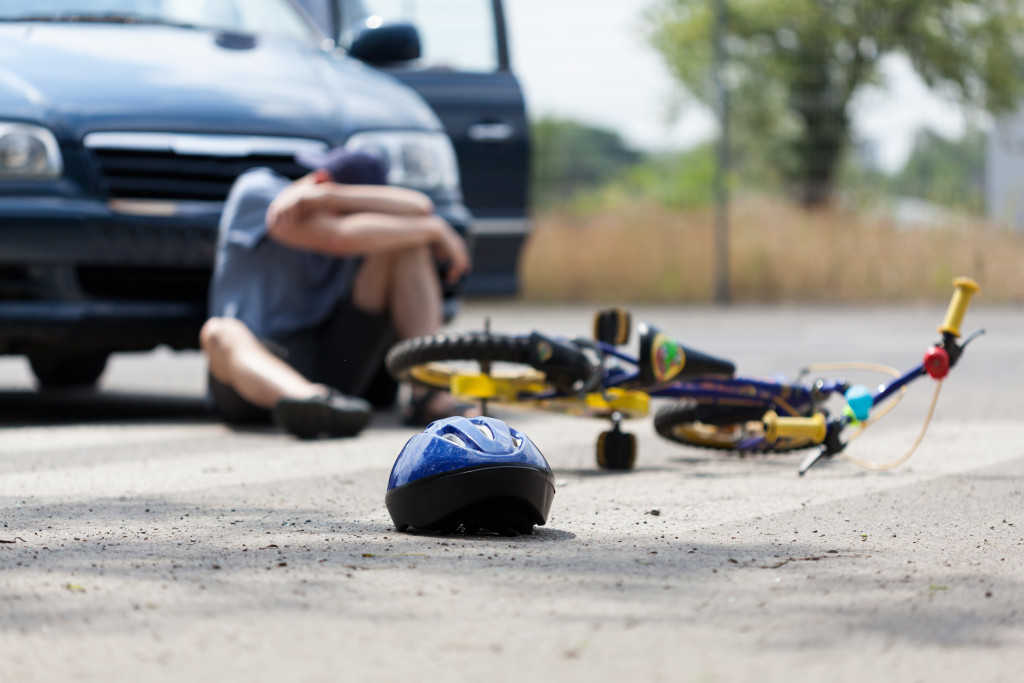Car accidents are, unfortunately, all too common. According to the National Highway Traffic Safety Administration, six million car accidents occur in the United States each year. While the majority of these collisions are minor fender benders, a significant number of them are serious enough to result in injury or even death. If you’ve been involved in a serious car accident, it is important to know that you are not alone and that there are steps you can take to cope with the trauma. Here are six tips for how to deal with the aftermath of a car accident.
1. Seek Medical Care
After you have been in a car accident, it is important to seek medical care as soon as possible. Even if you feel fine, there may be underlying injuries that will not be immediately apparent. A doctor or other medical professional will be able to conduct a thorough examination and determine if you have any hidden injuries.
If you do have any injuries, it is important to get them treated immediately to prevent further damage. For example, you will have to get maxillofacial surgery if you have sustained facial injuries. When it comes to personal injury claims, seeking immediate medical attention also helps demonstrate your injuries’ severity.
2. Seek Counseling or Therapy
It’s not uncommon to feel overwhelmed after a car accident. You may be feeling scared, confused, and alone. These are all normal reactions to an event that can be very traumatic. Many people find it helpful to seek counseling or therapy after a car accident. Counseling can help you process your emotions and understand what happened. It can also help you develop healthy coping mechanisms for dealing with stress.
Therapy can also be beneficial if you are struggling with anxiety or depression. If you’ve been in a car accident, don’t hesitate to seek help. Many resources are available to you, and there is no shame in seeking counseling or therapy. Remember, you are not alone.
3. Connect with Loved Ones
It’s important to lean on your loved ones during this difficult time. They can offer emotional support, assist with practical tasks such as helping you arrange medical appointments and just be a shoulder to lean on. Don’t hesitate to reach out and let them know what you need from them.
If you’re feeling overwhelmed or isolated, try contacting a support group for car accident survivors. Connecting with others who have been through a similar experience can be incredibly comforting and helpful.

4. Develop Relaxation Techniques
The stress and anxiety after a car accident can manifest physically, causing muscle tension, headaches, and trouble sleeping. It’s important to find ways to relax your body and mind. This may include deep breathing exercises, meditation, yoga, or just finding time to do something you enjoy, such as listening to music or reading a book.
Finding relaxation techniques that work for you can help reduce stress in the short term and manage it in the long term. You can also talk to your therapist or doctor about relaxation techniques that may be helpful for you.
5. Practice Self-Care
It’s important to prioritize caring for yourself after a car accident, both physically and mentally. This includes eating well, getting enough sleep, and finding enjoyable activities that bring you joy and help distract you from the stress of the accident.
Self-care also includes taking care of any medical needs and keeping track of appointments. Don’t hesitate to ask for help with this if necessary, whether it’s from loved ones or professionals such as a therapist or a personal injury attorney.
6. Give Yourself Time to Heal Both Physically and Emotionally
The healing process after a car accident is not always linear. You may have good days and bad days, and that’s okay. It’s important to be patient with yourself and give yourself time to heal both physically and emotionally. If you find that the aftermath of the car accident is impacting your daily life and functioning, consider seeking professional help from a therapist or counselor.
You should also give yourself time before making any major life decisions, such as quitting your job or moving. Give yourself space to process the event and determine what changes you want or need to make in your life.
Above all, remember that healing takes time and everyone’s journey is unique. Don’t compare yourself to others or try to rush the healing process. Take care of yourself and seek support when necessary. You will get through this, and there is hope for a brighter future.
